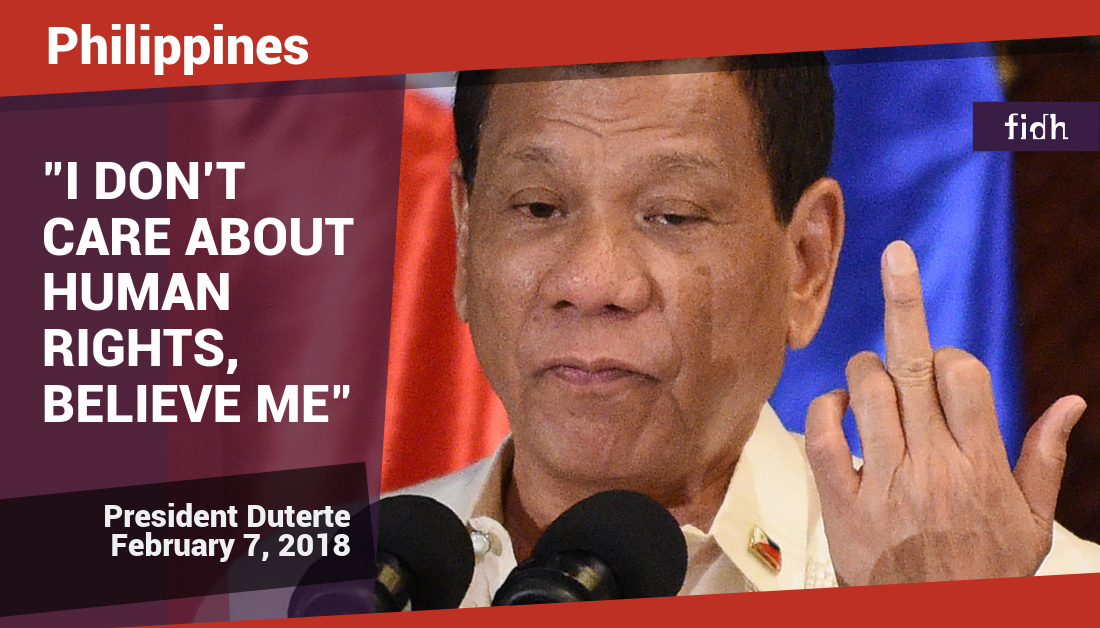Human rights defenders in the Philippines have been increasingly subjected to killings, attacks, threats, and other forms of harassment under President Rodrigo Duterte, according to the new report released by the Observatory for the Protection of Human Rights Defenders, a joint FIDH-OMCT programme.
The 40-page report, produced in the framework of ProtectDefenders.eu and titled “ I’ll kill you along with drug addicts – President Duterte’s war on human rights defenders in the Philippines,” documents the dramatic deterioration of the situation for human rights defenders in the Philippines as a direct result of Duterte’s policies, actions, and words.

Click to learn more about the Observatory's report.
Since President Rodrigo Duterte took office on June 30, 2016, his ‘war on drugs,’ the continued impunity for human rights abuses, the imposition of martial law over the entire island of Mindanao since May 2017, and his crude anti-human rights rhetoric have all directly contributed to an increasingly hostile environment for human rights defenders.
The number of land and environmental defenders, as well as journalists, killed in the Philippines has increased dramatically during Duterte’s presidency. From July 2016 to November 2018, at least 76 land and environmental rights defenders and 12 journalists were killed in connection with their work. Labour rights activists have also been the target of attacks and at least eight of them have been killed on Duterte’s watch.
Civil society groups working on human rights issues have been demonised and vilified under the current administration and reported increased surveillance, intimidation, threats, and other acts of harassment by the authorities.
Likewise, members of the independent Commission on Human Rights (CHR) have been harassed and their mandate called into question by Duterte’s administration. The credibility of United Nations (UN) experts has similarly been attacked, with Duterte’s slandering of UN officials.
In the political sphere, the Department of Justice has pursued criminal charges against a number of Duterte’s political opponents who have taken strong pro-human rights stances. In an emblematic case, Senator Leila de Lima has been detained without trial for more than two years under spurious charges.
President Duterte has demonstrated utter disregard for human rights and the rule of law by condoning, and even encouraging, extrajudicial killings and other serious human rights violations. This behaviour has further reinforced the Philippines’ long-standing culture of impunity. In February 2018, the ongoing impunity for Duterte’s ‘war on drugs’ killings was one of the key factors that triggered the opening of a preliminary examination by the International Criminal Court (ICC).
The report urges authorities in the Philippines to put an end to the prevailing culture of impunity for human rights violations, including extrajudicial killings and attacks against human rights defenders. This requires carrying out prompt, thorough, impartial, and transparent investigations into all allegations of human rights violations against human rights defenders.
The Observatory for the Protection of Human Rights Defenders (the Observatory) was created in 1997 by FIDH and the World Organisation Against Torture (OMCT). The objective of this programme is to prevent or remedy situations of repression against human rights defenders. FIDH and OMCT are both members of ProtectDefenders.eu, the European Union Human Rights Defenders Mechanism implemented by international civil society.


